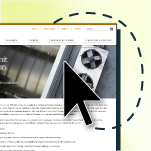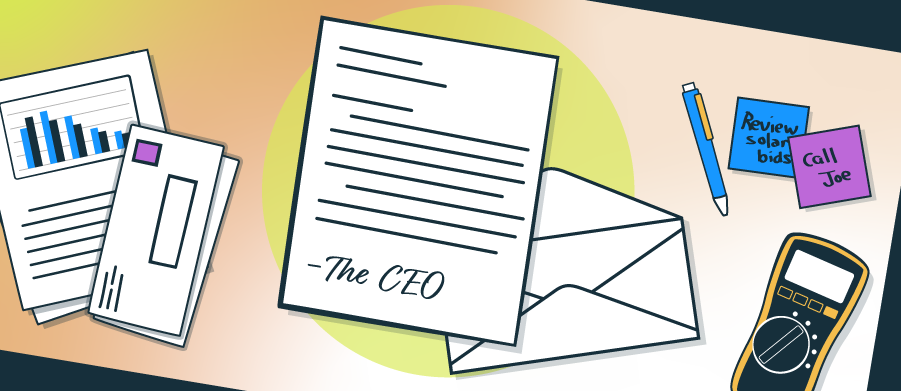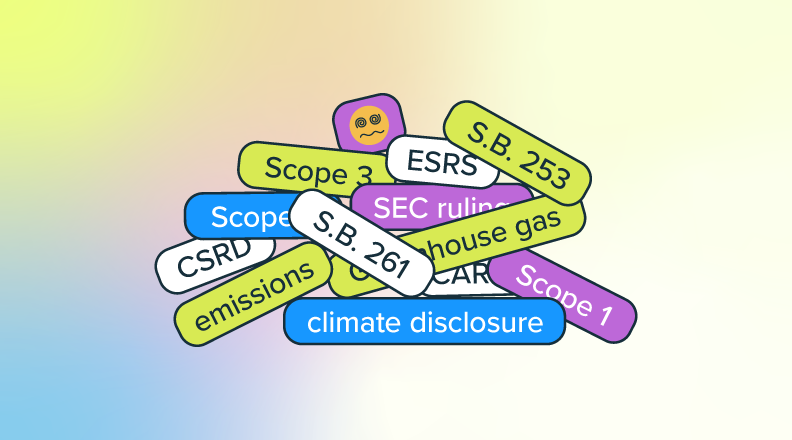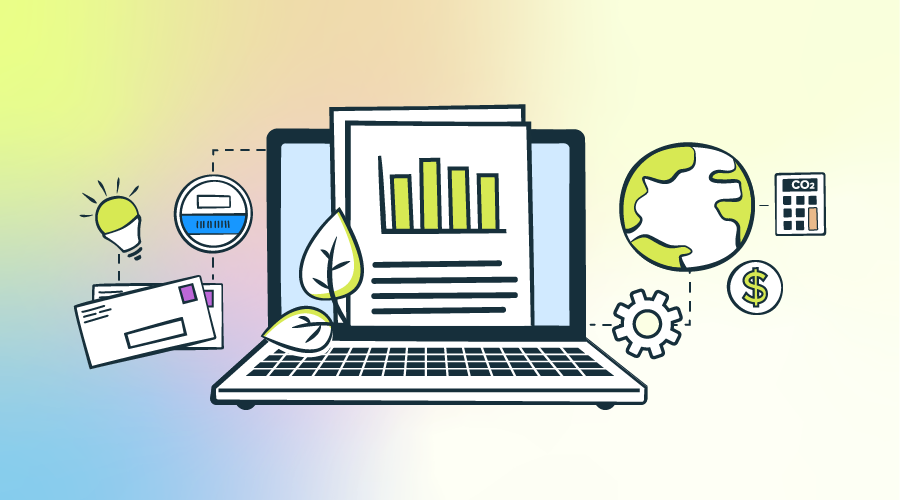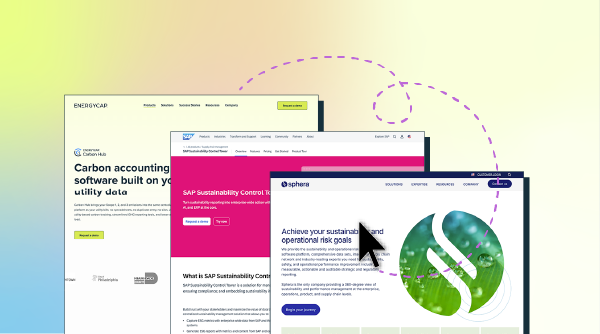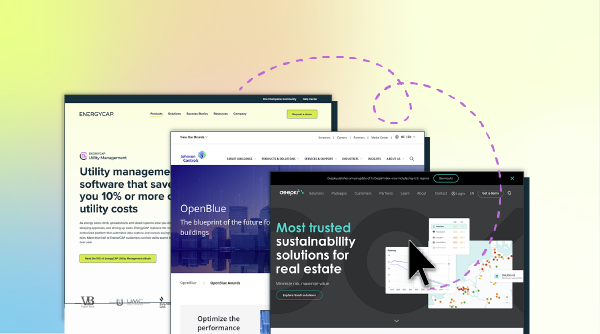The following blog outlines the webinar Reduce Costs and Comply: Energy Management Strategies for EU Retailers and Commercial Organizations with John Heinz, VP of Strategic Partnerships at EnergyCAP. Featured guest speakers include Cristina Coffey, Chief Strategy Officer at EpiSensor, and Aref Abouzahr, CEO and Founder of Ark Energy. You can find a full recording of the webinar here.
EU & UK Energy Directives and Sustainability Certifications
As a commercial or retail entity operating within Europe and the UK, it is crucial to adhere to significant energy regulations and certifications. The below outlines regulations to consider and how you can implement change to comply.
Regulations to prepare for:
EU Energy Efficiency Directive (EED): The EU Energy Efficiency Directive (EED) is a regulatory framework designed to promote energy efficiency across various sectors within the European Union. It mandates that member states implement specific energy audits and set efficiency targets to reduce overall energy consumption. The directive aims to encourage both public and private sectors to adopt more energy-efficient practices, contributing to the EU’s broader climate goals.
EU Corporate Sustainability Reporting Directive (CSRD): The EU Corporate Sustainability Reporting Directive (CSRD) requires European companies, as well as international group structures with a presence in Europe, to comprehensively report on the environmental and societal impacts of their business activities. This directive ensures that companies disclose relevant information on sustainability practices, enabling stakeholders to assess the environmental footprint and social responsibility of these businesses. The CSRD aims to enhance transparency and accountability, fostering a more sustainable and equitable corporate landscape.
EU Building Performance Directive (EPBD): The EU Building Performance Directive (EPBD) is focused on improving the energy performance of buildings within the European Union. It sets standards for new constructions and existing buildings, promoting energy-efficient designs, certifications, and retrofits to reduce energy consumption and carbon emissions. By enhancing building performance, the EPBD aims to create more sustainable living and working environments, contributing to the EU’s energy and climate goals.
UK’s Energy Savings Opportunity Scheme (ESOS): The UK’s Energy Savings Opportunity Scheme (ESOS) is a mandatory energy assessment program for large organizations. Under ESOS, qualifying companies are required to conduct comprehensive audits of their energy use and identify cost-effective energy-saving measures. The scheme aims to encourage businesses to take proactive steps towards reducing their energy consumption and improving overall energy efficiency.
Certifications such as LEED, BREEAM, BCorp, and ISO 50001: Certifications like LEED, BREEAM, BCorp, and ISO 50001 are globally recognized standards that demonstrate an organization’s commitment to environmental sustainability and energy efficiency.
- LEED and BREEAM focus on the design, construction, and operation of green buildings, ensuring they meet rigorous environmental criteria.
- BCorp certification highlights companies that balance profit with purpose, excelling in social and environmental performance.
- ISO 50001 provides a framework for energy management systems, enabling organizations to optimize energy use and enhance sustainability.
These certifications signal a dedication to environmental stewardship and sustainable practices.
Key activities and the tools needed to progress change:
Aligning with key directives and certifications involves ensuring that all actions and strategies comply with established standards and regulatory requirements. This alignment requires identifying and implementing essential activities and utilizing specific tools to facilitate and drive the necessary changes. By doing so, organizations can achieve their objectives efficiently while maintaining compliance and fostering continuous improvement.
- Energy Efficiency Retrofits: By implementing energy efficiency retrofits, organizations can optimize their energy usage and achieve significant cost savings, potentially reducing their energy expenditure by up to 40%.
- Digital Energy Management Platforms: These platforms leverage data analytics and digitization to provide actionable insights and comprehensive energy/carbon reporting, such as EnergyCAP’s intelligent energy management tool, SmartAnalytics™.
- Sub-metering: Sub-metering allows for the precise monitoring and conservation of energy resources by tracking consumption at the asset level, including equipment like chillers, boilers, and SCUs.
- Solar PV: The integration of solar photovoltaic (PV) systems or other renewable energy sources onsite can substantially decrease reliance on non-renewable energy and contribute to sustainable energy practices.
- Low Delta T-Rehabilitation: Addressing Low Delta-T issues through rehabilitation can eliminate associated penalties and enhance overall comfort standards within the facility.
- Re-commissioning: Re-commissioning processes are essential for enhancing the performance of buildings, ensuring systems operate at their optimal efficiency.
- Thermal Cooling Load Assessment: Conducting a thermal cooling load assessment helps in optimizing chiller performance, leading to improved energy efficiency and reduced operational costs.
Getting Started with Energy Monitoring – Practical Tips
Setting up energy monitoring systems is crucial for effective energy management, and there are several actionable tips to ensure success. Implementing these steps can lead to significant energy savings and a more sustainable operation:
- User Experience: Choose systems that are easy to install, commission, and use on an ongoing basis.
- Required Expertise: Consider infrastructure that doesn’t require specialist expertise – your onsite qualified electricians should be able to deploy and manage the system easily.
- What comes as standard: At the procurement stage, check what is included with the energy monitoring system you are purchasing. For example: Are CTs connected as standard? Do the products have robust dust and waterproof enclosures, or are these purchased separately? Purchasing an incomplete system can drive up costs at the installation stage, and for ongoing maintenance.
- Operating Environment: Ensure systems can operate under various conditions, indoors or outdoors, and in intense environments (where products are subject to extreme cleaning processes for example).
- Extensibility: Look for systems that can monitor multiple utilities (electricity, water, gas, temperature) and be expanded as needed.
- Utility Metering: Check if you can tap into utility meters with pulse counters, for example, so that you can invest further in sub-metering.
- Value-Added Capabilities: Ask yourself if the system is flexible enough to introduce environmental optimization and asset optimization in a cost-effective way.
- Integration Capabilities: Ensure compatibility with existing energy management platforms, BMS systems, and assets like solar PV and batteries. Intelligent energy monitoring systems can absorb weather predictions and make decisions based on this information – for example, charging batteries ahead of poor weather conditions to optimize the use of solar PV.
Real-World Success Stories
Inspiring energy management success stories that leverage EpiSensor IoT solutions:
Woodies Retail, Ireland: Implemented sensors across 36 nationwide locations, resulting in real-time data monitoring, enhanced remote monitoring capabilities, and over 300 site-specific alerts to identify problems and opportunities. Identified numerous energy-saving opportunities through data visualization, using EpiSensor’s energy monitoring infrastructure.
3Arena in Dublin: Ireland’s largest entertainment venue. Achieved 6-figure energy savings annually by optimizing energy use during events and when the building is dormant.
European Supermarket Chains: Improved refrigeration efficiency by monitoring temperatures, optimizing energy use, and ensuring product safety during power outages. Real-time monitoring and calibration of refrigerators enable these retailers to reduce energy consumption and take advantage of dynamic pricing, thus reducing costs.
Driscoll’s Cold Storage: Monitoring temperature in cold storage facilities, as well as in transit. Once logistics vehicles arrive at their destination, in-flight data is loaded to EpiSensor Gateways, enhancing Driscoll’s decision-making capabilities on temperature management.
Ark Energy’s success story with a Luxury Residential Client:
Luxury Residential Client: Aref Abouzahr , CEO and Founder , Ark Energy showcased a remarkable energy management and carbon accounting program for a luxurious residential client in Dubai.
Key outcomes and benefits included:
- ISO50001 enabled.
- Seamless transition post ESCO exit.
- €280 K in energy savings.
- One unified system.
- Enhanced Standards of Comfort.
- Continued Energy Savings Insights.
- Enhanced board and management reporting.
Deep Dive into Energy and Carbon Data
The importance of accurate and comprehensive data in energy management cannot be overstated. EnergyCAP’s platform offers tools for:
- Carbon Tracking (EnergyCAP CarbonHub): Monitor and report carbon emissions, enabling compliance with environmental regulatory changes. Track both utility and energy data, and non-utility data, such as vehicle fleet data, capital purchases, business travel, etc.
Implementation Insights
What goes into a software implementation process, such as EnergyCAP SmartAnalytics? Aref Abouzahr, CEO and Founder of Ark Energy has highlighted the steps to integrate a digital platform into a building:
- Define KPIs: Understand your objectives and the key performance indicators that need monitoring.
- Digital Maturity Assessment: Evaluate existing metering and sensor capabilities and add required sensors and meters.
- System Integration: Connect equipment to the chosen smart analytics platform.
- Data Onboarding: Ensure the quality and historical relevance of data.
- Customization: Tailor dashboards, alerts, and thresholds to specific needs.
- Go Live and Enablement: Launch the platform and provide ongoing support to ensure value extraction.
Final Thoughts
Working towards energy efficiency and compliance with regulations requires a unified approach. By adopting the correct tools, accessing relevant data, and tapping into expert knowledge, companies can make significant strides in energy conservation and enhance their sustainability measures for the foreseeable future.
Resources and further reading:


